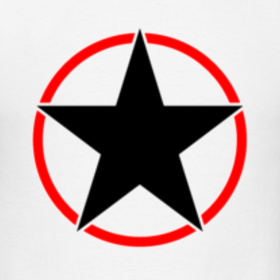 |
Writing about Literature Galena Park ISD AP student workshop 9 Nov 2013 |
 |
Outline for presentation:
1. What is literature? How and why do we write about it? What is the difference between what we read and what we write? (40 minutes)
2. Introduction to American Immigrant Literature, course objectives, and Midterm1 Assignment (15-20 minutes)
[break + read sample midterms] > 10:20
3. Discussion of student sample midterms (30+ minutes)
4. Even if you don't major in Literature, what value? (15+ minutes)
![]()
1. What is literature? How and why do we write about it? What is the difference between what we read and what we write? (40 minutes)
Terms:
Creative Writing: fiction, poetry, plays > autobiography, personal narratives, personal essays, films, graphic novels, computer games, hyperfiction
Critical Thinking: analysis, essay, position paper; essay as argument, court case
Other terms for critical writing you'll see in college: rhetoric, composition, writing
expository writing or exposition (explaining, describing)
Creative Writing
narrative as sequence or code of symbols
examples:
Shakespeare, Hamlet (selections)
Katherine Anne Porter, "The Grave"
Creative Writing, as imitation of reality, unfolds naturally in time, series or sequence of events: First this, then this, finally that.
Love, heartbreak, memory.
represents (immediacy) > vicarious experience, feel like you're there
Critical Thinking
Thesis, topic sentences, transition
unity, continuity, and transition
Critical Writing / expository writing: unfolds in more complex or abstract organizations; begins not with an event or emotion but an idea, thesis, theme
critical writing refers (distance) > detachment, evidence, judgment (cf. lawyer making case in court)
critical distance, power of ideas over reality
essays, like creative writing, reflect, shape, or interpret reality
Everyone can tell a story, narrate a sequence of events. Can you organize events or data into ideas?
Examples > genres
subject, genre > theme / thesis
Constitutive differences:
Creative Writing: represents or creates an imitation of reality (action, mood) (mimesis); conflict > resolution
Critical Thinking: refers to a shared reality or part of reality; comments on what already exists
Organizational differences:
Creative Writing: usually a narrative, chronological sequence (imitates normal time)
Critical Thinking: prioritizes idea over matter, facts, examples; not chronological sequence but analytic patterns like cause-and-effect, comparison-contrast, conflict-resolution
Why write about Literature?
"Use your words!" < larger units of words
almost nothing else of past survives
schools / universities built around writing, literature
literary people can only write or teach writing
not dangerous like engineering
> critical thinking; practice
processing knowledge, input, debate, difference > take positions, action
techniques of creative and critical writing overlap
good news: language improves with practice
As a young person, the world or reality is more or less a given, feels like nature, the way things have always been, a few crucial themes or ideas organize it
As you age, you discover how much our reality is something we've built, designed, adapted to nature--something we can break but also something we can reshape and redesign.
![]()
2. Introduction to American Immigrant Literature, course objectives, and Midterm1 Assignment (15-20 minutes)
Introduction to American Immigrant literature
High schools studying literature much as I studied it in 1968
10th grade / sophomores: World Literature, esp. Western epic, drama, mythology +- non-Western literature
11th grade / juniors: American Literature
12th grade / seniors: English / British Literature
some national emphasis, but also idea of great literature as timeless, transcending history--even though it's old, we can still relate.
Recent literary studies reflect how much world has changed since 1968
more multicultural, global, and historical (not timeles
![]()
3. Discussion of student sample midterms (30 minutes)
Questions for discussion
Which parts are working and why?
How do the essays keep you reading? How does their writing both entertain and inform?
What balance between formality and informality? Between third-person references to literature and first-person references to "I" or "my experience?"
How much is talent? How much is technique?
Noyes Midterm1 comments: Thanks for an excellent essay, Dorothy, now posted to the Model Assignments. Its greatest pleasure and instruction came from how you kept bringing the two identities of minority and immigrant together for consideration, then separating them in recognition of significant differences.
Not to suggest
I could do so well, but like you I prefer that kind of cycle to simply posing
differences. Alas, hard experience taught me that such a cycle often only
confuses the larger part of a classroom. Therefore, at risk of becoming “a
divider not a uniter,” I concentrate on explaining differences as a baseline of
comprehension that everyone should be able to reach—and from which a few
students can launch to more complex formulations. Which sounds like poor me, but
good for you and for your reader for taking an extra step up.
Rea Midterm1 comments: Your midterm1 essay was far from problem-free, Cassandra, but it did a lot of things right, especially in terms of covering and comprehending essential course materials, plus writing with some real feeling that our identities matter.
With some necessary corrections made, I posted your essay to our Model Assignments and look forward to seeing more of your work, preferably with some kinks worked out. I corrected the spelling of Anzia mentioned in a previous email and provided the title that was required of all essays—don’t forget: all essays need titles. In your final paragraph you left out a “not” and used the wrong words (mind for find, if for of), all of which I corrected for the posting, but geez. These are issues you show the ability to handle on your own, so for future submissions please take time to review and edit, since your grade would otherwise have been at least an A-.
The one other improvement I meant to mention, now that all those surface issues are disposed of, is the ends of your paragraphs. When you end a paragraph, try to come out on the main point that you’re developing and relate it to your overall thesis or theme. As it was, your paragraphs often ended on a minor point relevant only to the issue being covered in that paragraph, which is not exactly wrong but weak. The ends of your paragraphs are where you return your reader to the mainstream or central theme of your essay.
This note
sounds grumpier than I mean—mostly just a lot of details. There was a lot to
like in your essay, only I had to spend all my note explaining what went wrong.
You’re a gifted writer and a good soul. I’ll be glad to help as I can.
![]()
4. Even if you don't major in Literature, what value? (15 minutes)
What value to reading great literature?
What value to writing about it?
Creative Writing
For Better Social Skills, Scientists Recommend a Little Chekhov
depth or internality vs. surface / screen of electronic media
Critical Thinking / Writing
argue a point, reach agreements
democracies require literate populations
Socrates, Plato, Aristotle all posited that a citizen must be able to deliberate, reason, analyze, listen to or read others
in public schools, English teachers manage differences, find a way forward.
How much work goes on when you write an essay, what you have to get right
Galena Park Independent School District
14705 Woodforest Blvd.
Houston, Texas 77015


